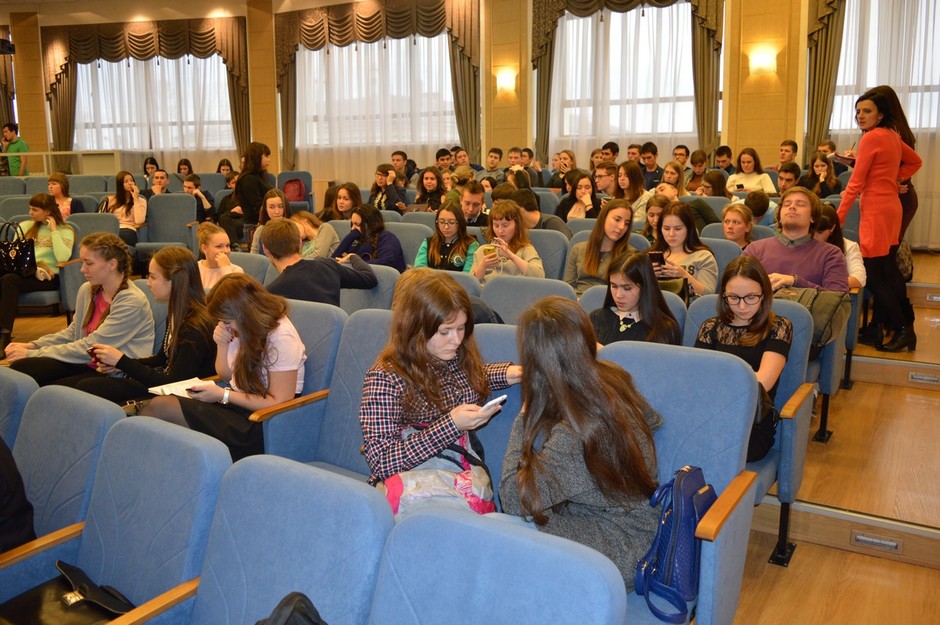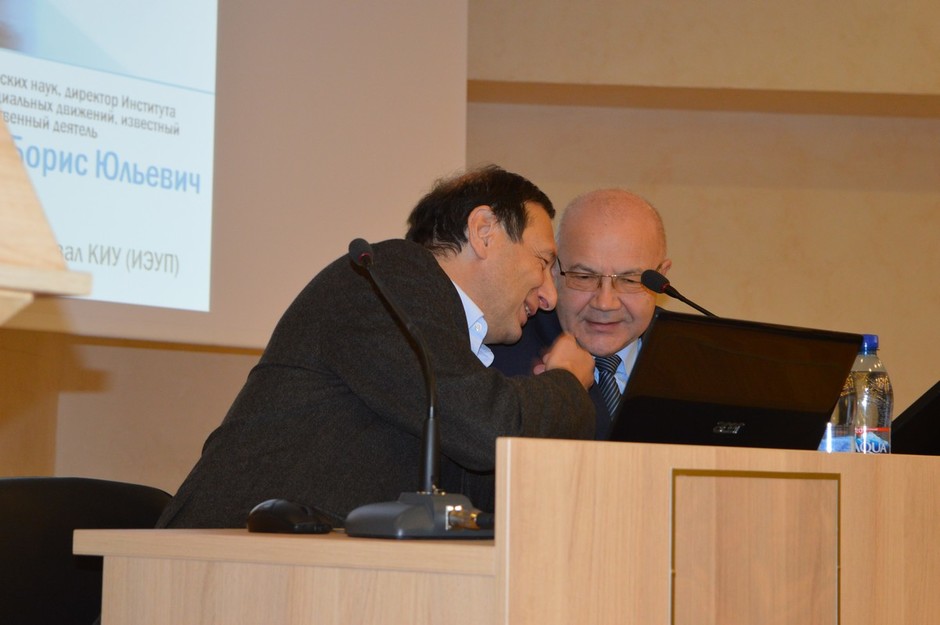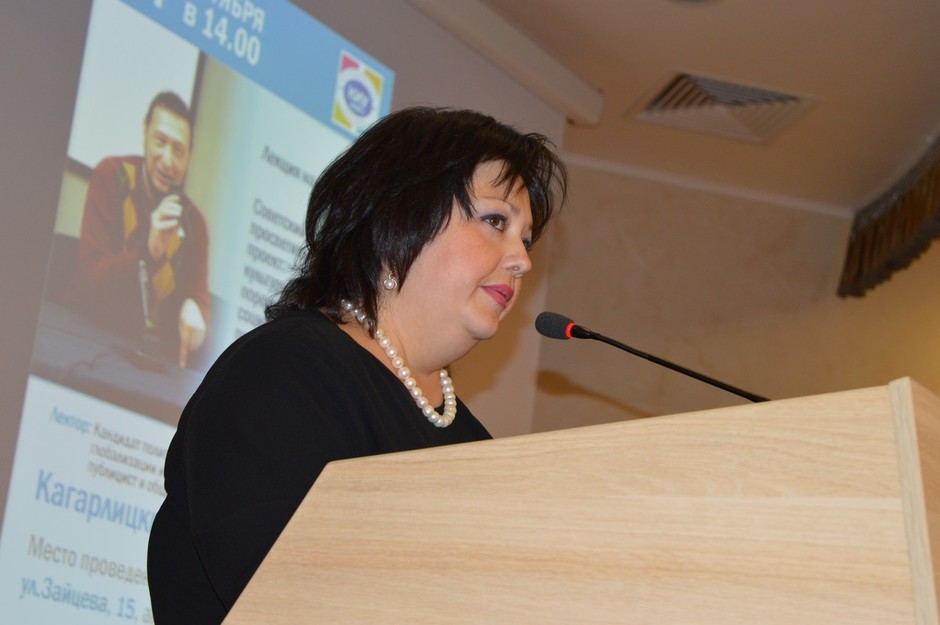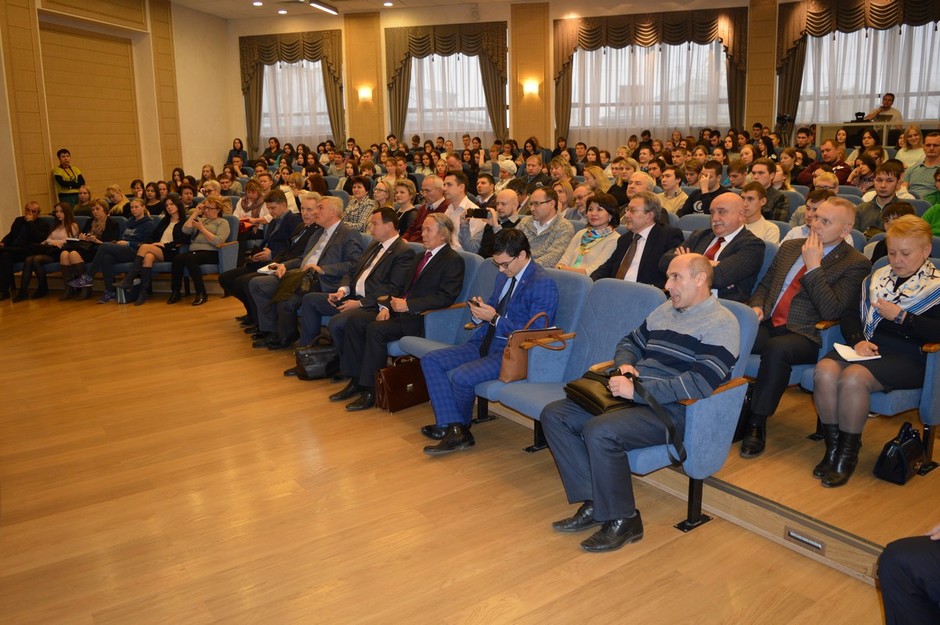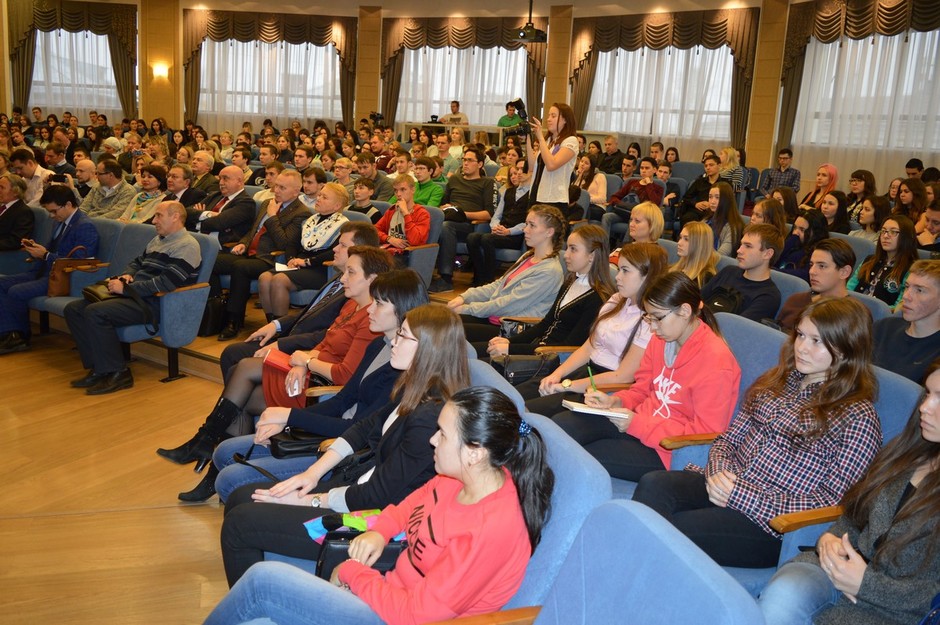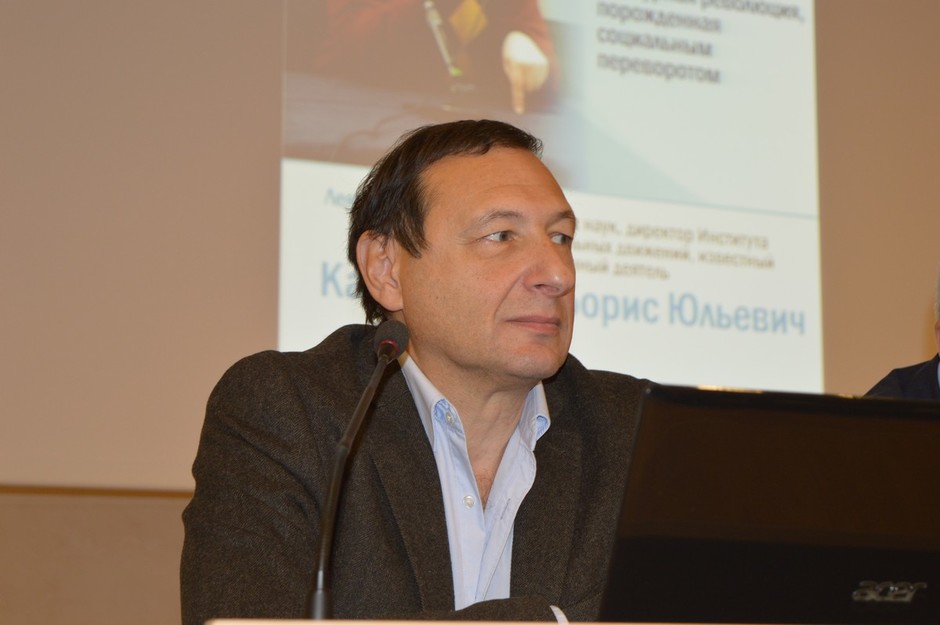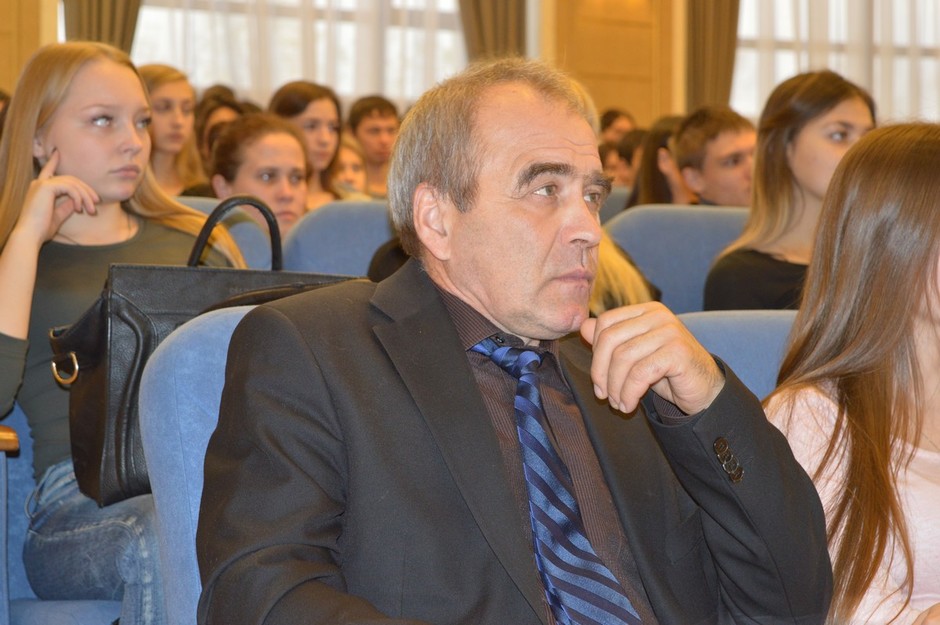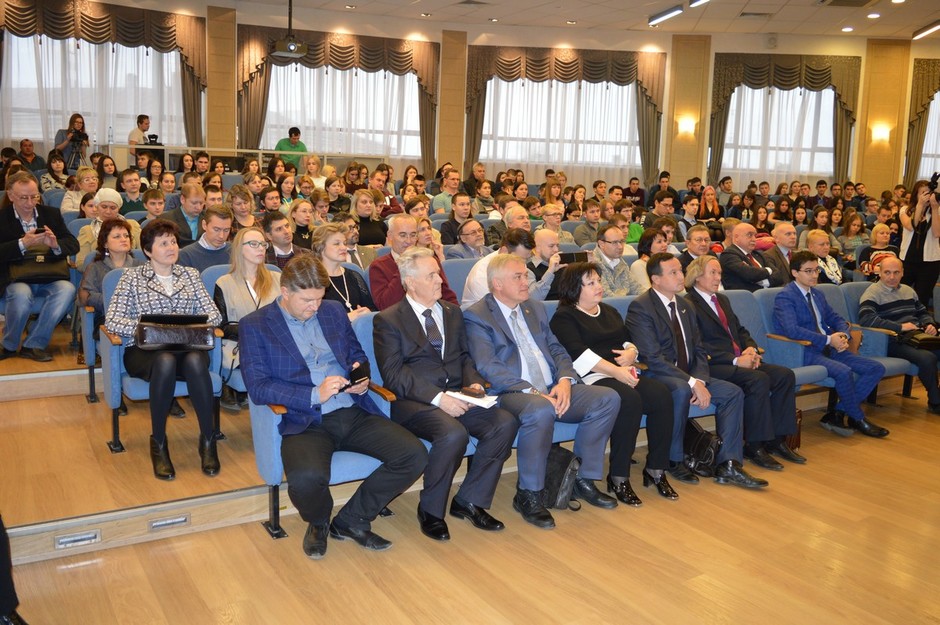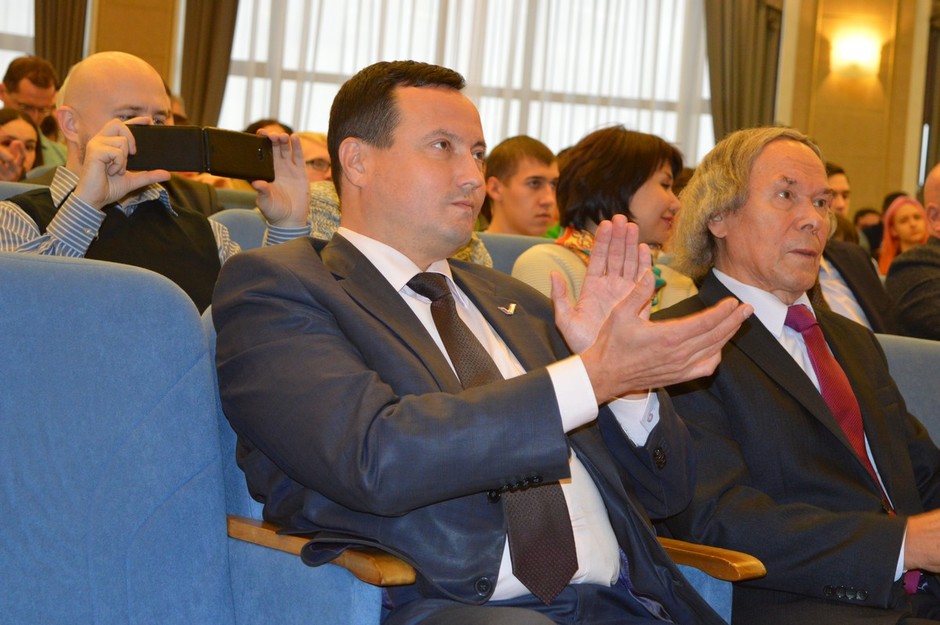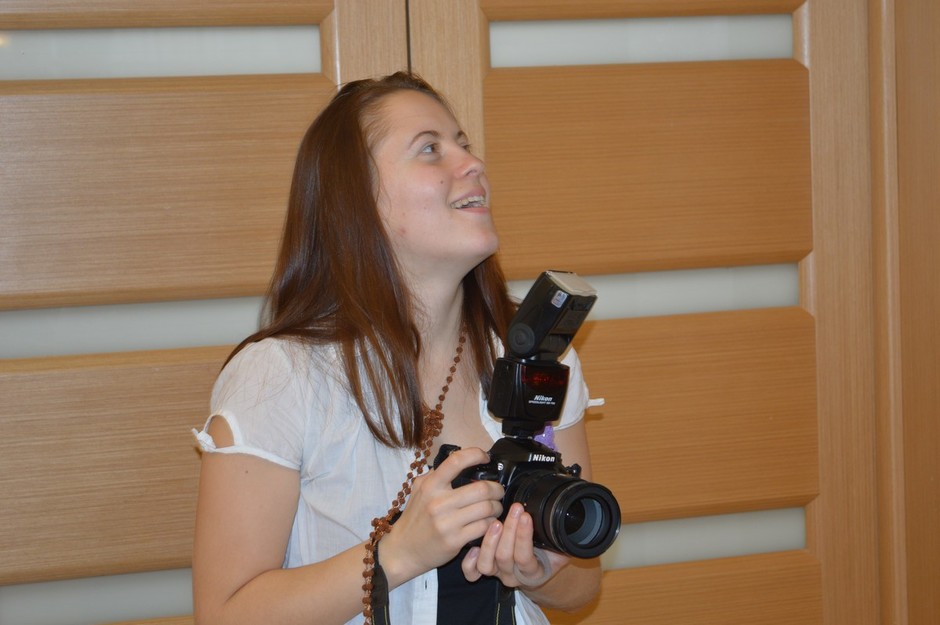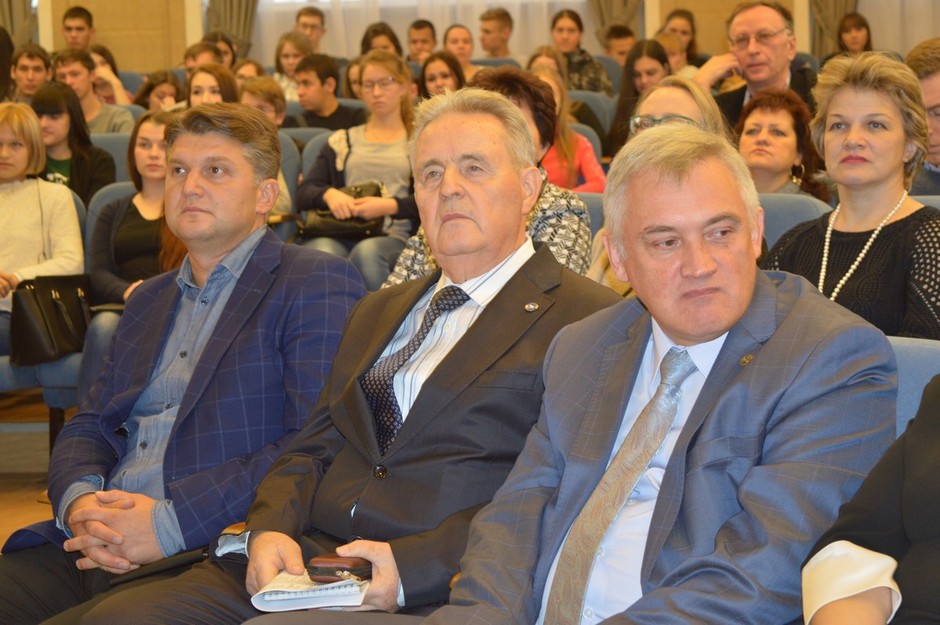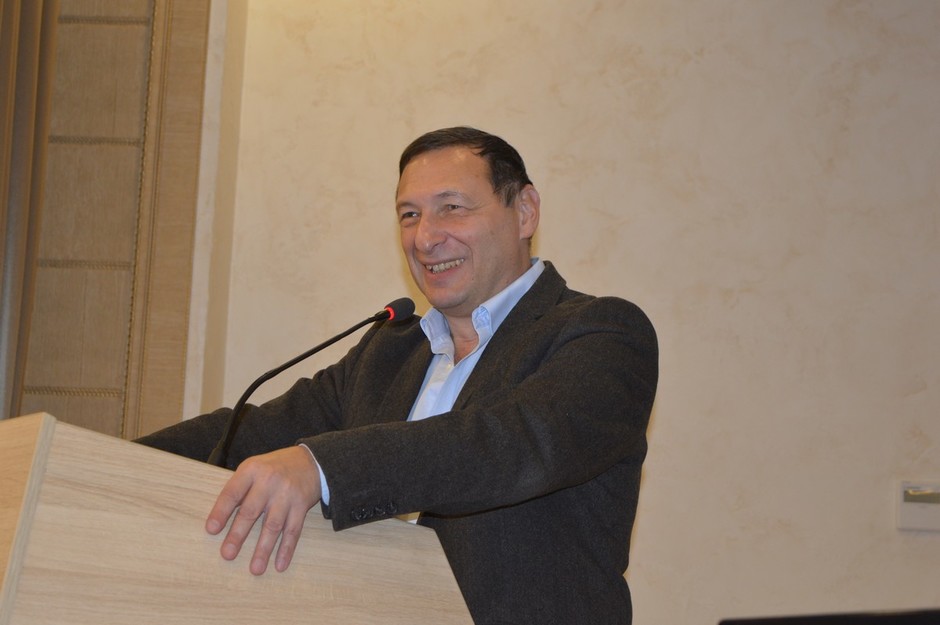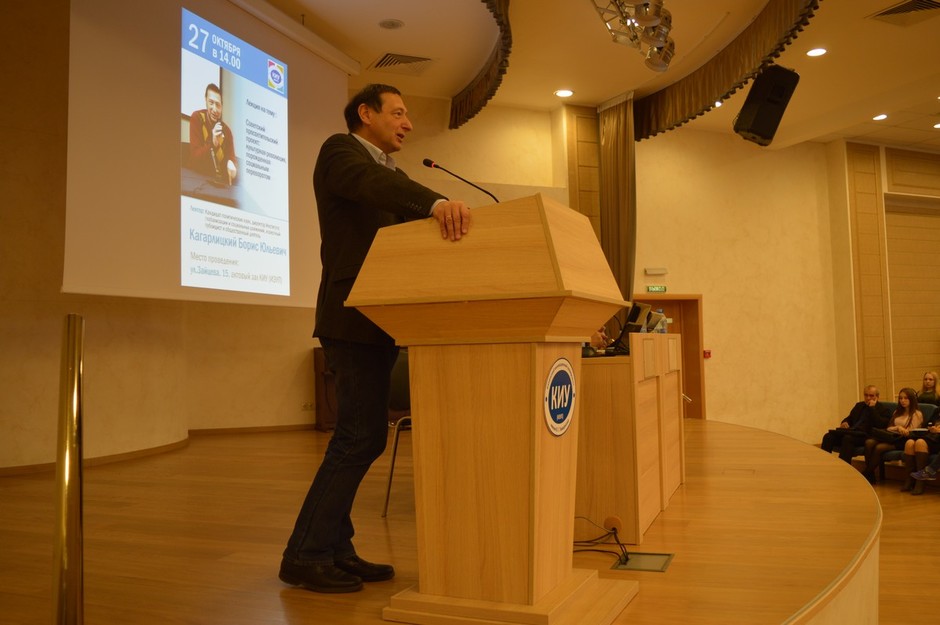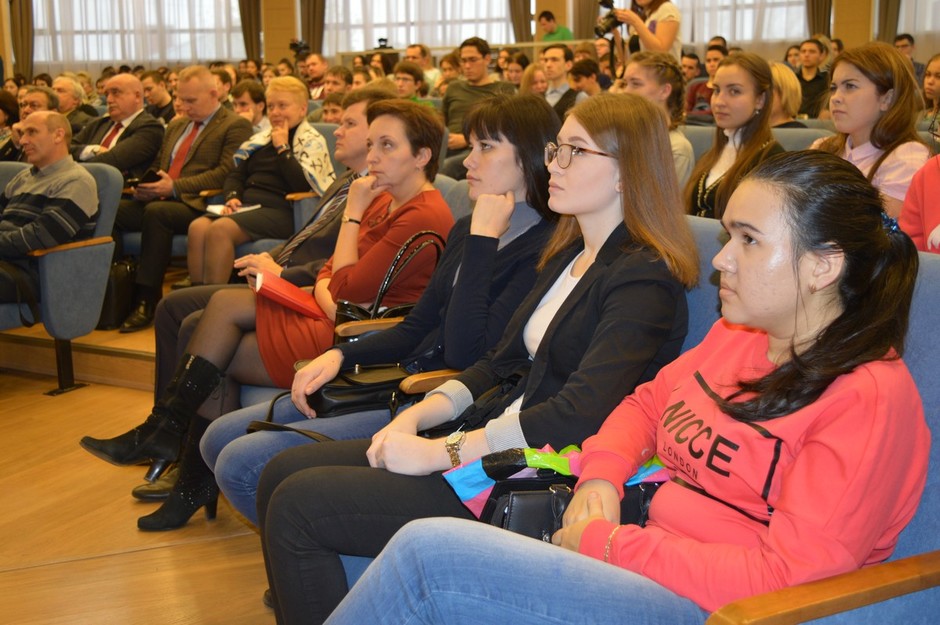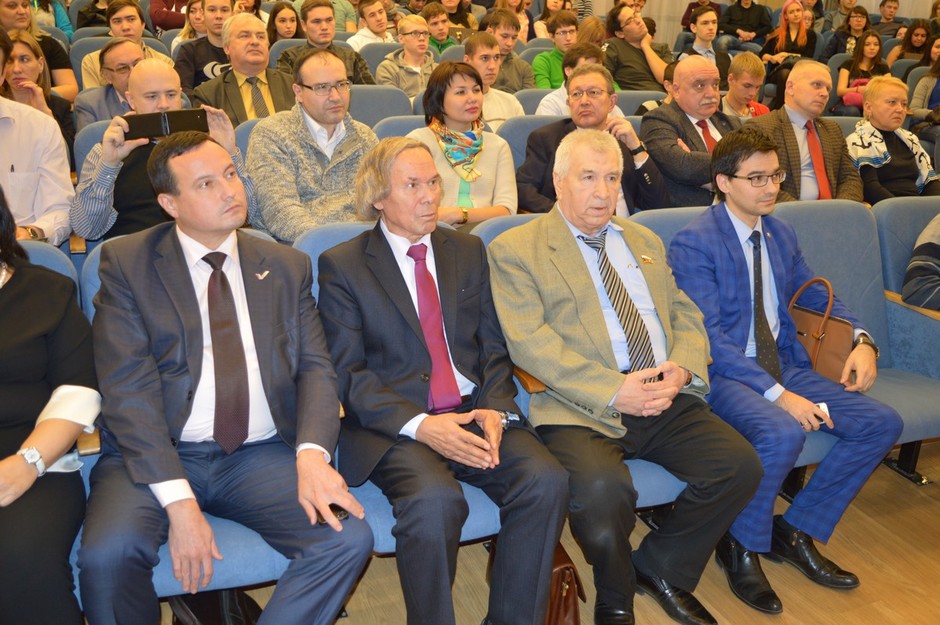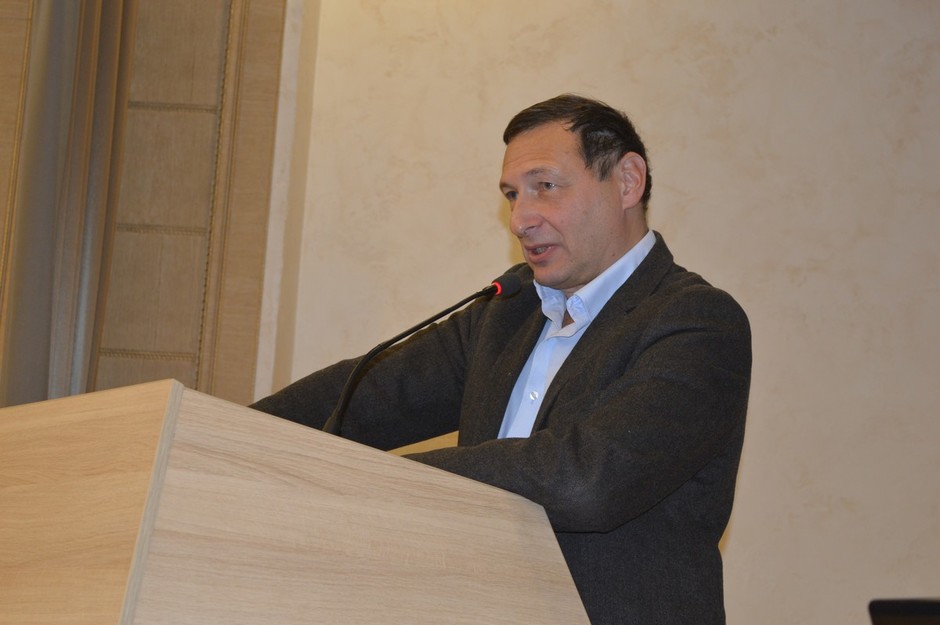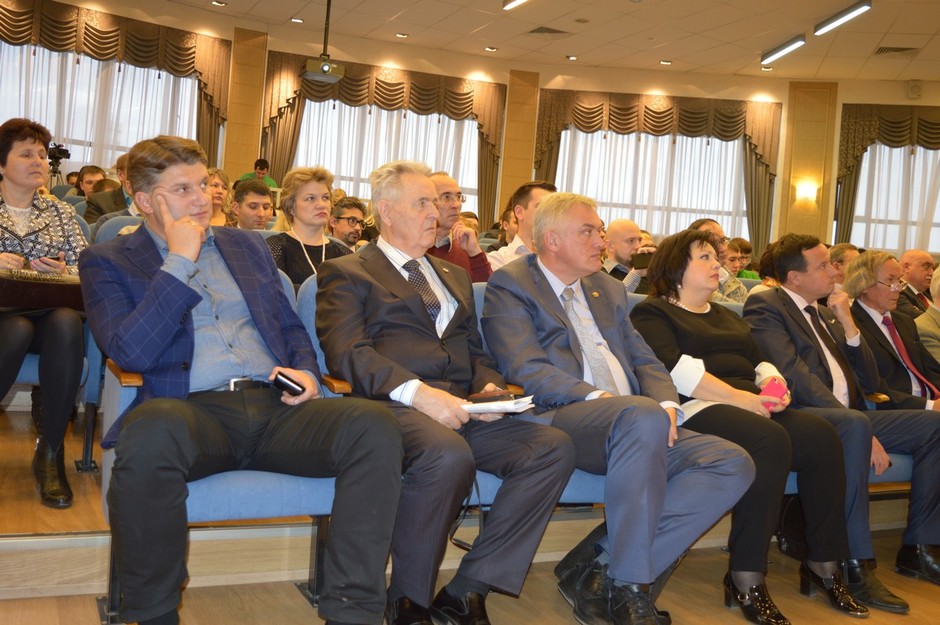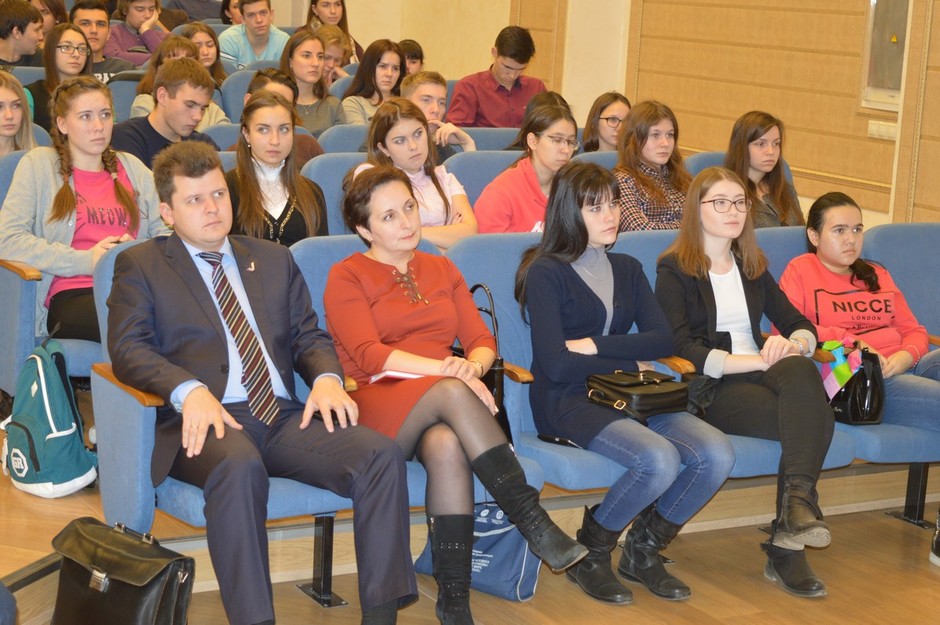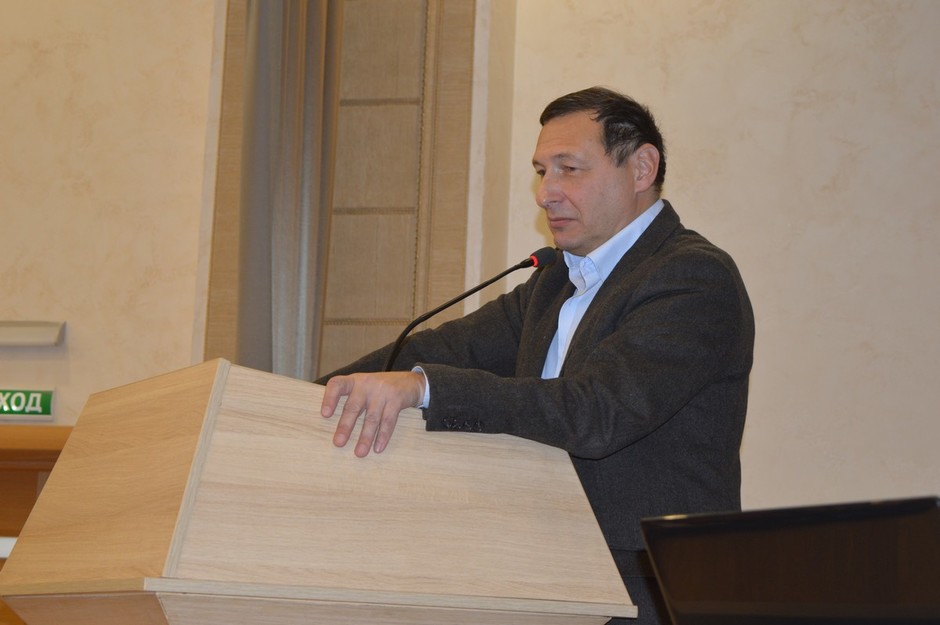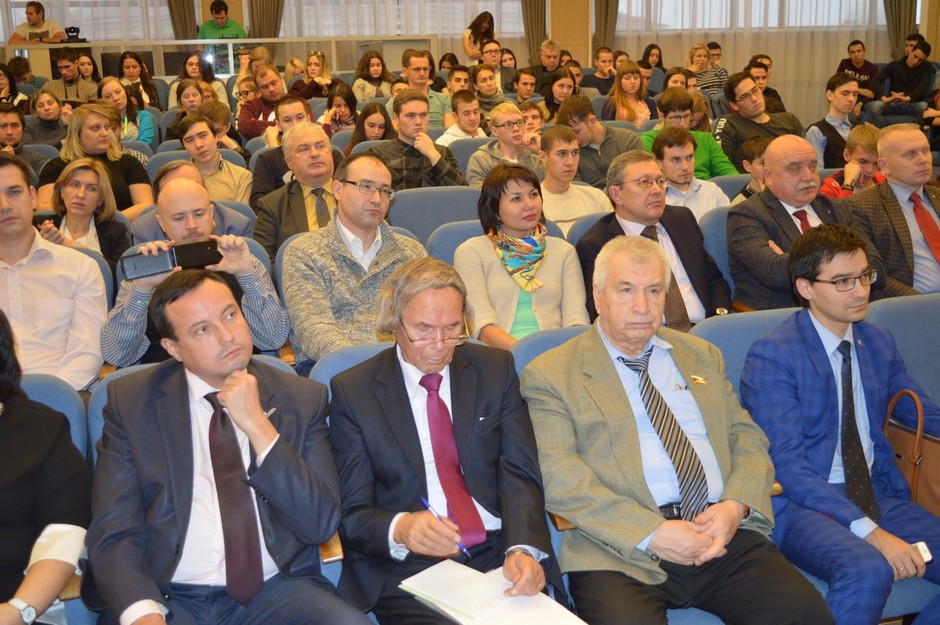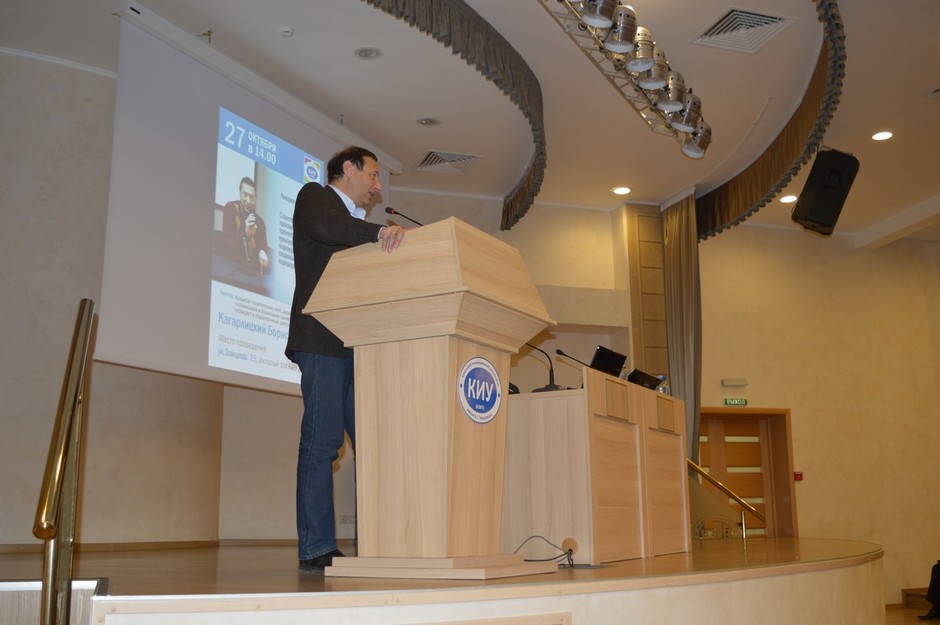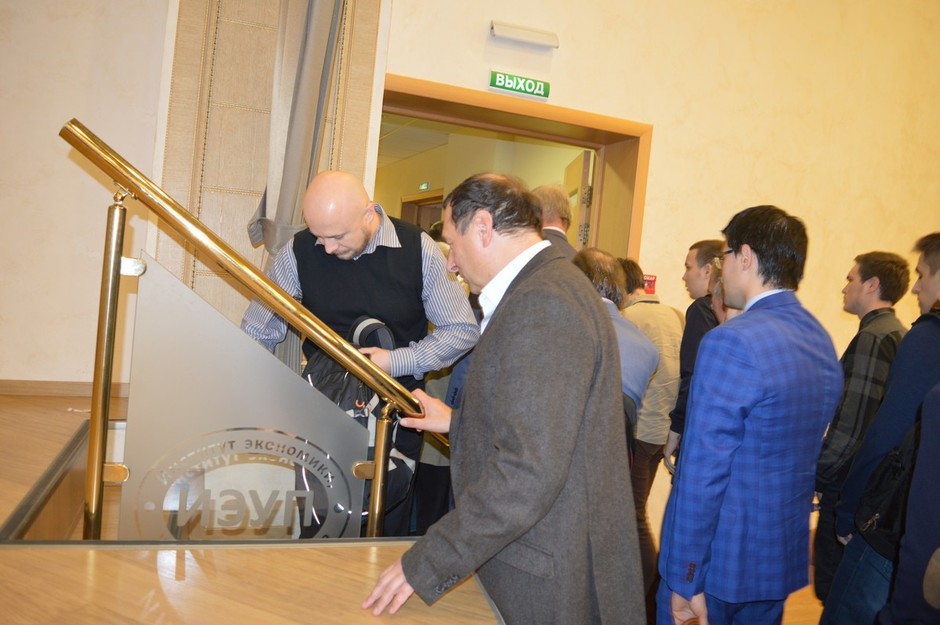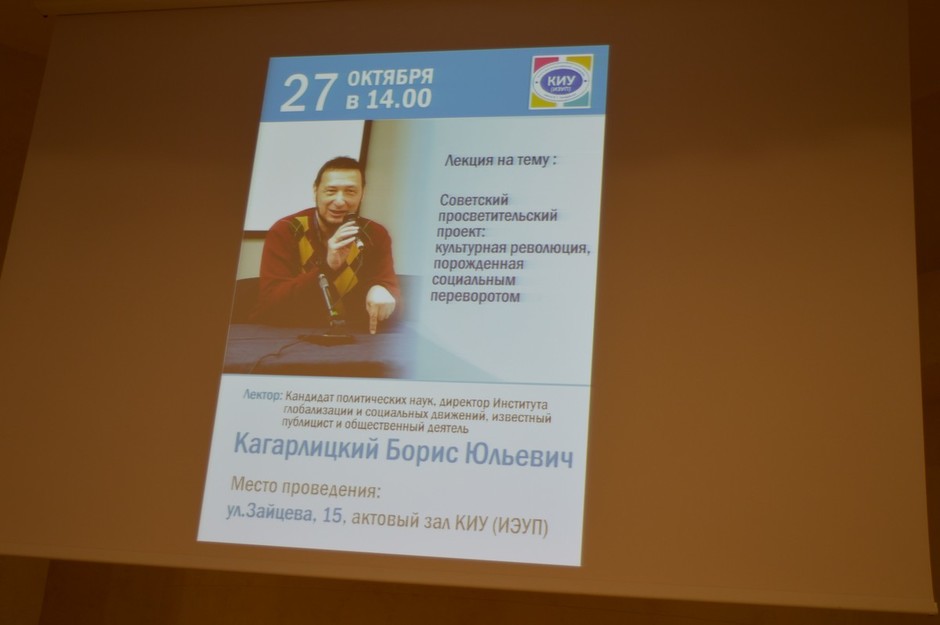‘Bolshevik project was radical and educational. Authoritarianism is its disadvantage’
How a Soviet leftist dissident was grieving for a new course of power for education
A famous leftist columnist and political expert Boris Kagarlitsky delivered a speech at a scientific forum in Kazan on 28 October. One day before that he shared his opinion about achievements of the Soviet education that we can lose soon with teachers and students. He also explained why he shaved his beard. A correspondent of Realnoe Vremya visited the meeting too.
Education: elite or popular
'Soviet enlightenment project: cultural revolution caused by cataclysm' was the name of the lecture that the famous columnist and social activist, candidate of Political Sciences, director at the Institute of Globalisation and Social Movements Boris Kagarlitsky gave in front of Tatarstan university teachers and students. The meeting took place at the Kazan Innovative University named after V. G. Timiryasov.
'Last time I was here was 6 years ago. You should be very lucky. It is a city where one wants to live. I hope it is not a wrong impression,' the expert started with a compliment addressed to the capital of the republic.
However, the pleasant note ended here. The political expert told that while he was flying to Kazan, he read in the plane an article in Vedomosti. It was told that education should not be mass, and there ought to be few people with a higher education.
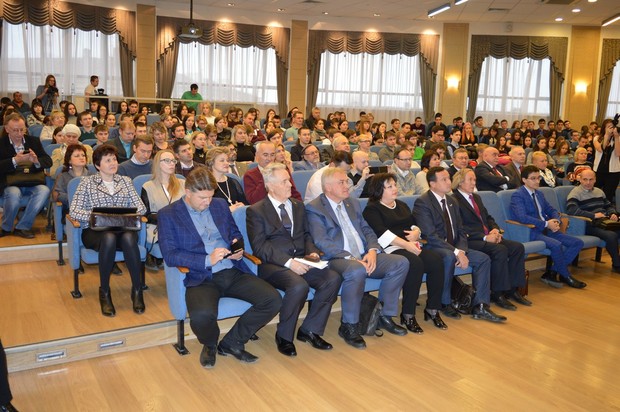
Last time I was here was 6 years ago. You should be very lucky. It is a city where one wants to live. I hope it is not a wrong impression.
This declaration means that a certain part of our elite set a course for cancellation of the results of the Soviet era,' he noted. 'We are directly told that the population should not be very educated, it should not have much knowledge, and people should not be taught much. It should belong to the elite that needs to protect its situation in the society without allowing other people to get this education. There is a point: universities are worsening because of their massive scale by default.
Kagarlitsky agreed that the quality of education in the country fell. At the same time he defined the meaning of the Soviet cultural revolution that took place till the end of the 1960s – a denial of this upmarket approach to enlightenment. Now we will demonstrate the speaker's key points.
What did the revolution in 1917 drastically change? Russian have been told about the Russia we lost for the last tens of years. There were wonderful, educated noble aristocrats. There were merchants, benefactors. Then it all was destroyed. None of them wanted to quickly enhance the educational and cultural level of the society in general. They had a principal problem: as soon as the intellectual level of people rises, they will start to get more than they have – an understanding of the current social and ideological processes. More educated people start to ask uncomfortable questions and understand they don't differ much from the people who rule them.
Why is the pre-revolutionary elite is better than the current one?
Lenin told there are more stupidities during a revolution. A person who did not participate in processes starts to take part in their management, in politics. And he or she makes mistakes.
But the old pre-revolutionary society was based on the principles that seemed natural. A Russian nobleman or English gentleman was preparing for his role as a representative of the ruling class from his childhood. Unlike the current ruling class, he was inculcated quite a big sense of responsibility.
The most elite military divisions consisting of noble kids were sent to the most responsible and bloody zones during wars. A big part of the Russian cavalry, which comprised of representatives of aristocratic families, died in Austerlitz. Nobody in the country worried that they were thrown into a bloodbath. They complained that they lost the battle. They were obliged to do that because they assumed that role and had to incur corresponding costs.
The British had an analogous story when Englishmen boarded on Gallipoli during the Gallipoli Campaign (Battle of Çanakkale in 1915-1916). Guards of the Queen's security that consisted of children of the oldest aristocratic families were sent to the initial penetration first. The regiment was almost completely wiped out by Turkish guns. Only then the second wave went next. It was made up of Australians who were children of farmers and miners.
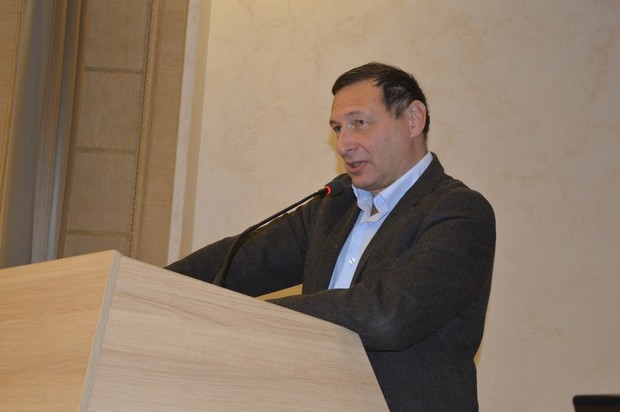
Lenin told there are more stupidities during a revolution. A person who did not participate in processes starts to take part in their management, in politics. And he or she makes mistakes.
Russia's old elites understood they owed the people like you got an education, you were taught, prepared – now you owes. The idea of that you owed the people destined the mass flow of the intelligentsia to the revolution. They understood the society needed to be changed to expand promotion channels. Now there are not many people who think they owe somebody. Rather on the contrary: somebody owes me.
We can admire these people (nobility) how they stood in front of the gun. Nevertheless, this system is deeply anti-democratic in fact. There was not any lift in this system. There were not possibilities to be socially promoted, there were not any promotion channels.
We can hear wonderful stories about Lomonosov and privates who served until becoming nobility. But we know these stories because they were exceptional. When we exam the Soviet history, we see that every second or third biography shows that grassroots achieved incredible success. It became a norm that guarantees a completely different development of the society.
Authoritarianism is a disadvantage of education
We like remembering the Philosophers' ships when the smartest people were expelled. Apart from Pitirim Sorokin and Berdyaev, no passenger created science and did not achieve great success in the West. Sorokin hated the revolution. But after the Great Patriotic War, as an elderly person, he addressed the Soviet Embassy to talk to Soviet scientists. But the old man was not allowed to enter the Union. The same thing happened to Berdyaev. There is a photo of him where he sits in a cabinet with his pupils in Paris in 1945, including participants of the French Resistance, with Stalin's portrait in the background.
It seemed that talented people left. But they gave way to many other people who substituted them.
The idea of the Soviet intelligentsia, which meant its obligation to the people, was expressed in the educational ideology – to teach the people, so that they will reach the level of the educated society. The Bolshevik project was radical and educational. Authoritarianism is its disadvantage. Twice two always makes four, not five. If not, it is not an education any more. When we are told that children should study Darwin's evolution a bit and a little of creationism, it won't be successful, it is not an education. Education, knowledge, truth are authoritarian things.
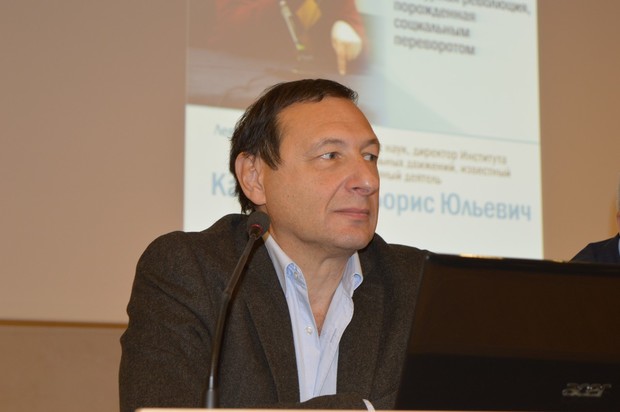
The spirit of education is not always the spirit of freedom. It is a subject, order, certain authoritarianism.
As it was told in France, a famous Kampuchean dictator Pol Pot was a very good school teacher. But millions of people died – it failed, he had bad pupils.
The first decrees of the Soviet power on elimination of illiteracy said that intelligence was not only a right but also an obligation. Well, it is authoritarianism, not democracy: a Soviet citizen was forced to read and write.
The spirit of education is not always the spirit of freedom. It is a subject, order, certain authoritarianism.
But force must have limits. To start with, inertia needs to be overcome. If reforms of the Soviet power in the 60s had succeeded, if they had been more systematic and well thought, the consequences would not have been so tragic.
Tragic mission of Russia
The educational projects of the Soviet society was a radical breakthrough for the whole humankind. There were changes in the West under the influence of the Soviet Union. In Sweden, the King introduced a popular suffrage in 1917 right after the October Revolution in Russia. Many countries improved social conditions and democratic liberties of their citizens looking at the USSR.
It turned out to be very unfair: our country overcame all the tragedies, challenges, terrors. We had to pave the way towards a social state in 1937, collectivisation, war, repression, bans and a great deal of horrible things. The Swedish, Norwegians got it all prepared.
But somebody has to pave this way. It is our tragedy and a great role in front of humankind. Our country made a huge contribution by means of terrible mistakes. Many people learned by using our mistakes. We got a society of popular education, modern industry, huge opportunities. Now even any wild capitalism is anyway better than a 19 th-century capitalism. It all was conquered by unbelievable sacrifices.
What did 25 years of capitalism give us?
The last 25 years have shown a sad thing: almost all achievements are irreversible. A number of things that are a characteristic of the Soviet way of life seemed natural like a weather. We fairly criticised the Soviet Union [if somebody knows Kagarlitsky's biography, he spent 13 months in Lefortovo Prison; he was accused of an anti-Soviet activity, though he admits he has never been an anti-Soviet person]. We always supported the reformation of the Soviet society. Disadvantages of the Soviet system were considered as something that needs to be overcome, while advantages (free water, cheap transport, etc.) were natural. Changes that arose in the 80s were seen like a positive thing.
A society change carries risks. It is necessary to do it accordingly, realizing the risks, with open eyes, you need to be honest with yourself. The Soviet society turned out to be a hostage of its own system.
Now nothing can be taken for granted, eternal. We have approached a milestone. The market model, under which we have lived for the past 25 years, has exhausted itself. Although it has cons: the supermarkets appeared. Unfortunately, the abundance of goods on the shelves is not an indicator of economic and social development.
We have come to the borders of economic development. Its indicator is the global economic crisis, which has lasted eight years and does not want to cease. The economy, which is based on the maximum reduction of labor and costs, while maximizing profits, starts to strangle demand and thus strangles itself. Comes to a dead end.
But we for a quarter of a century have not only exhausted the possibilities of liberal market development but also the possibilities to use the cultural-psychological educational legacy of the Soviet Union. For 25 years we have driven on the human resources, trained during the Soviet era. But it's not a renewable resource: people, education. Until the system appear that will renew itself.
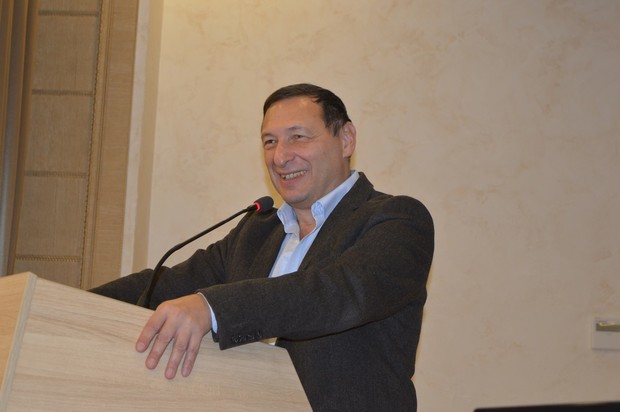
We ourselves have radically changed. The modern society is a society with extremely high levels of rivalry and low solidarity. We receive education in order to be able to communicate but not fight with each other.
Now we face the urging problem of overcoming disunity. The education should be focused on solidarity.
It's all about beard
'It's time to raise banners. And the anniversary of 1917 is a good reason for that. You need to study the history of the past, to draw the socio-political lessons. We should cultivate the ethic of solidarity, it is one of the objectives of education. We will solve this if we defend the principle of accessibility and universality. The battle for education, which is going on in the country, is the battle for the future. The future of Russia and of the world depend on whether the structure of public education will be destroyed or not. We will have to fight for the ideals of the enlightenment. I think they are worth it,' concluded Boris Kagarlitsky.
It should be noted, Kagarlitsky was without the usual beard. When the correspondent of Realnoe Vremya inquired what was the reason for the change, he replied that he will grow a beard when will achieve the historic victory.
What should be a historic victory?
When the socialist path of development will be returned, said the expert.
Do you think it will happen?
I don't know (laughing). Maybe, I will have to grow a beard anyway.
